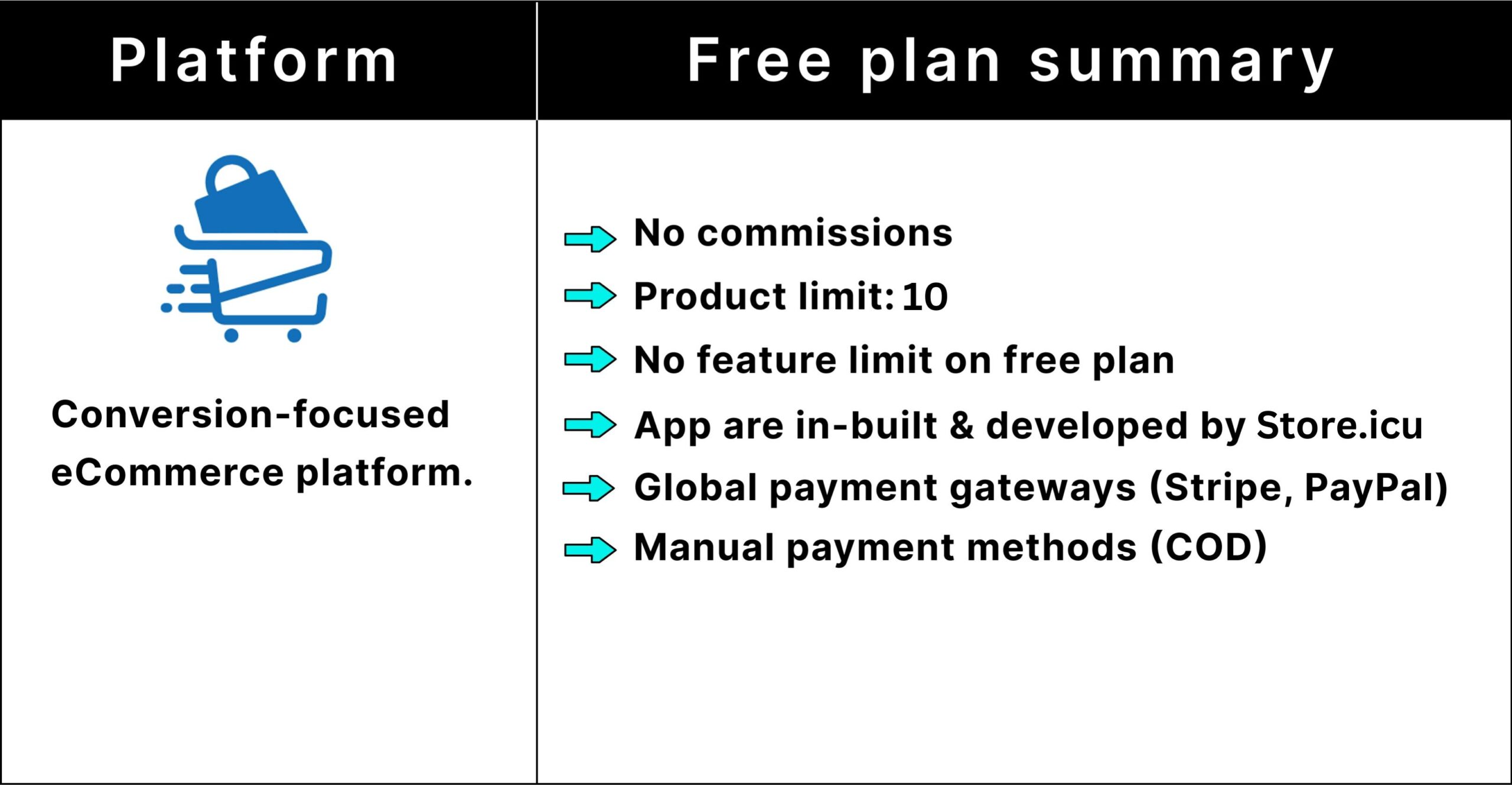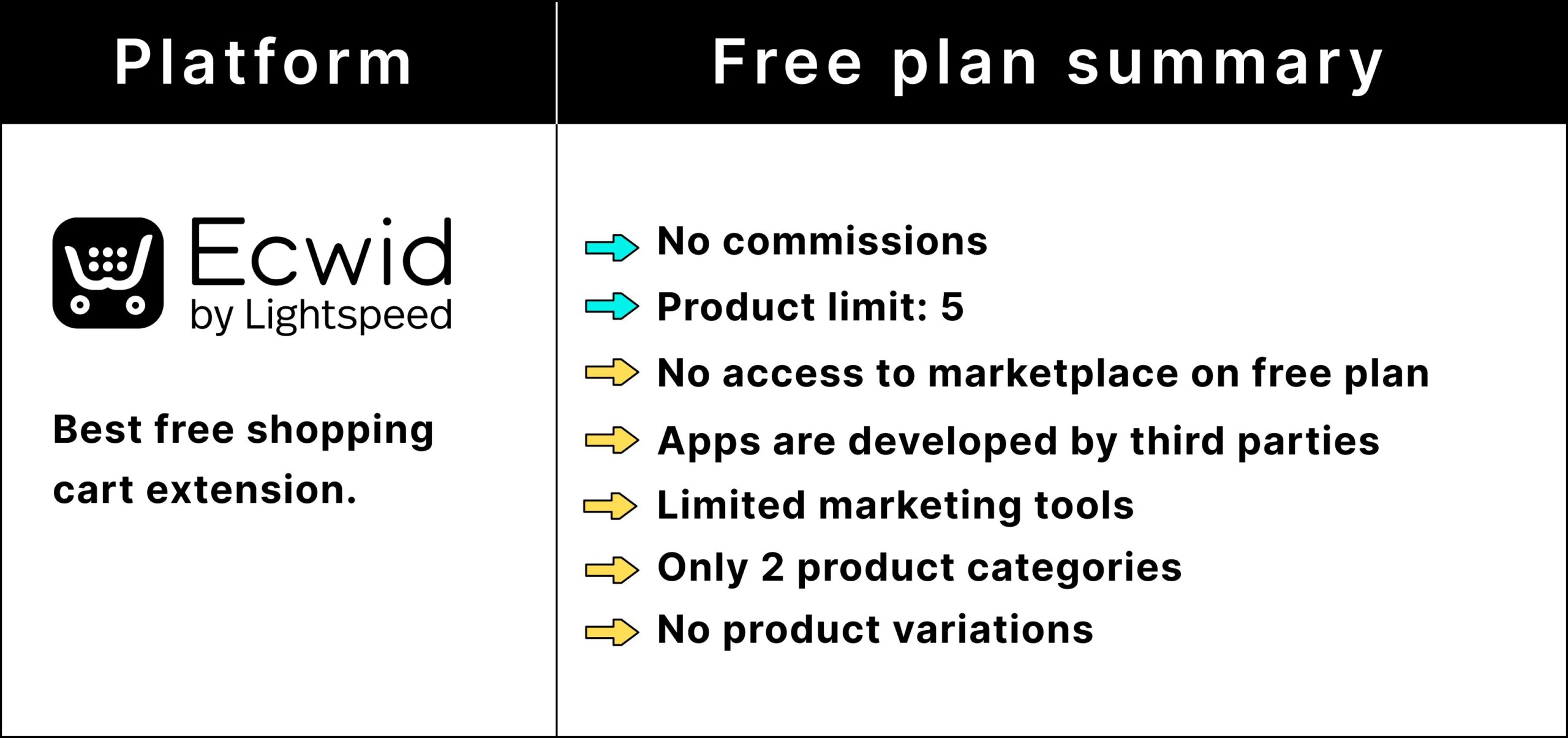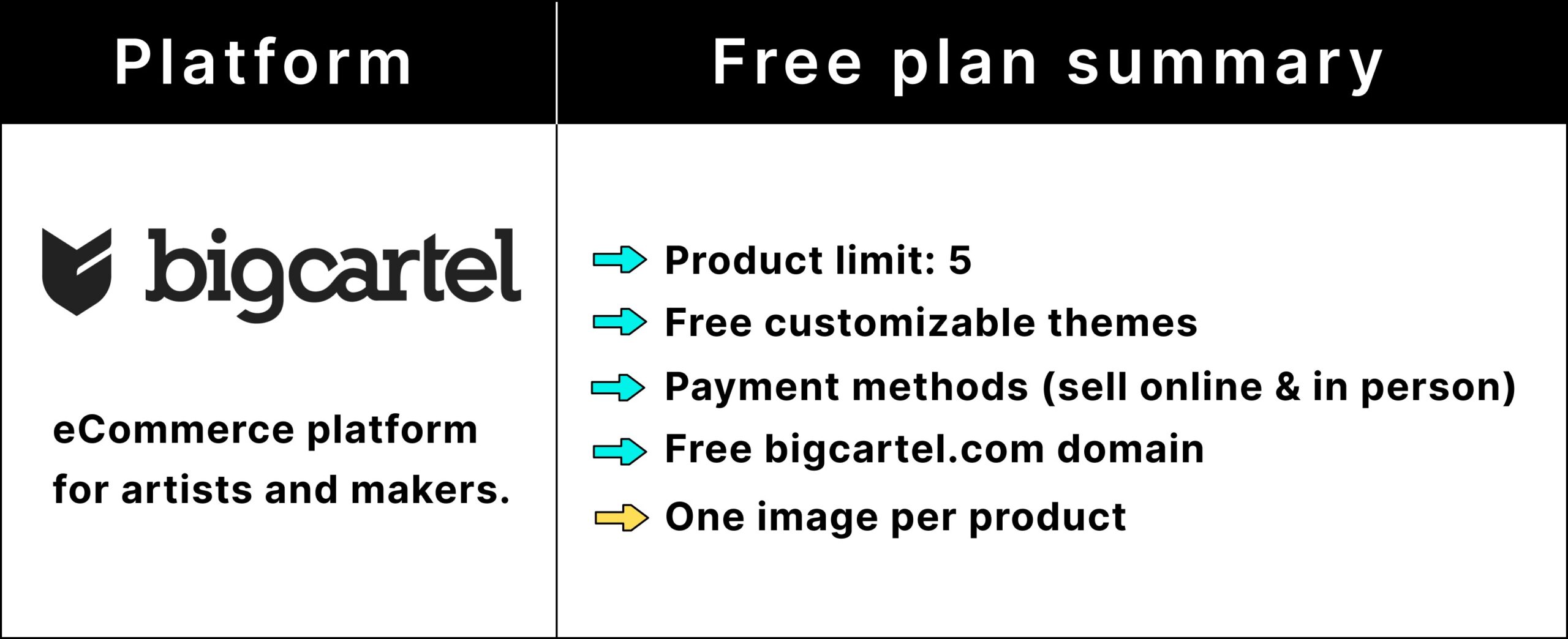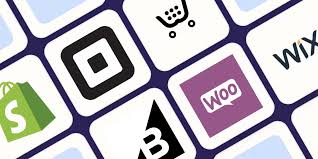Having an online presence is a new normal to small business success.
However, the process of moving from a brick-and-mortar store to online presence can be challenging. It’s especially true for small businesses, since the transition process involves cost.
Small businesses may face challenges when investing in their retail business, maintaining the growth while trying to save on budget. And, when moving online, additional costs occur and the overall cost of business management increases.
Best step to move small businesses online then, is finding free ways to sell online.
To sell products online for free you have only few options:
- Selling on a free eCommerce platform (website)
- Selling on Social Media
- Selling on marketplaces
Though the options are limited, they are effective.
In this article, we’ll be looking at the ways of selling products online for free while maximizing your cost saving.
Sell online for free eCommerce platform
As a small business, to sell your products online for free on a website, you need to select a free eCommerce solution.
You have two options to select a free eCommerce solution for your small business:
- Open source eCommerce platforms
- Free eCommerce platforms
Free eCommerce solutions are usually open-source eCommerce platforms. These platforms are free because they are developed by a community of volunteers, and the cost of development is distributed among the contributors.
There is a “but”.
Though open-source eCommerce platforms are free, these solutions require higher initial setup cost (hosting, domain name registration, development for additional features or plugins, etc.) and take much time to go live.
Beside the initial setup costs, there are also maintenance costs which are not an optimal choice for small businesses unless you have developer & coding skills.
So, we cross over that option.
Then, we have one option left to sell free on a website.
Here comes the free eCommerce platforms, meaning an eCommerce platform that includes a free plan, not a trial. There are only a few eCommerce platforms that offer free plans for sellers. Our handpicked free commerce platforms for small businesses are us – Store.icu, Ecwid, and Big Cartel.
Yes, these platforms have free plans for small businesses. However, each free plan has its limits.
To compare better, let’s review what each platform’s free plan features.
Store.icu‘s free plan:

Ecwid’s free plan:

Big Cartel’s free plan:

How to decide which free eCommerce platform to choose?
It’s recommended to treat moving your business online like an MVP (minimum viable product) in a startup.
Michael Seibel, managing director at Y Combinator talks about planning MVP, he says that: “The best advice about MVP is to actually launch something quickly and iterate. Get the product in the hands of your customers, and learn whether it helps them or doesn’t and then iterate and improve it over time. The wrong answer is to spend time on distractions like fundraising, growing a team.”
In the case of moving online, it’s best to select a free eCommerce platform for your small business that gives you all the minimum required online selling tools and features that helps you sell and earn, which is:
- A nice theme that gives you beautiful websites
- High speed online shop to improve SEO
- Product collections for organizing your products better
- Payment options to accept payments from customers
- Necessary eCommerce solutions like shipping & inventory management
Also, when choosing a free eCommerce platform with the minimum solutions and online selling tools, consider its potential. In this way, the platform you’ve decided to sell for free will improve as your business grows.
Takeaway:
- Choose a platform that gives you the minimum required tools to build your online presence.
- When choosing a free eCommerce platform pay attention to the pricing plans so they don’t limit features that may affect your business operations and block your development.
- Another important factor in choosing an eCommerce platform is that it should be promising: it should grow as your business grows.
Now you’ve chosen a platform where you will sell your products for free, next you should work on accepting payments – enabling payment methods.
Process affordable payment options for your store
As a small business, when your goal is to sell free on websites to save on cost, you should enable payment methods that are also affordable.
Enabling global payment methods like Stripe and PayPal is a must. These payment gateways are widely recognized by customers and seeing these payment options on your online retail store can build credibility and trust.
According to a study by comScore, the checkout process with PayPal results in a conversion rate of 88.7%, which is 82% higher than a checkout process that doesn’t include PayPal.
However, note that though these gateways are free to enable on your online shop, they have transaction fees that are not dependent on the store’s payment system.
Is there a free payment solution for eCommerce businesses?
For small businesses, especially who sell locally, we recommend using conversational commerce tools like manual payment methods that include “Order on WhatsApp” and “Cash on Delivery” to save on your costs. Here is why:
- It’ll free you from paying transaction fees
Beside the cost saving factor, there are many benefits of manual payment options:
- Human interaction, especially in the checkout process can increase trust and loyalty for your brand.
According to the eDigital Customer Service Benchmark survey of 2000 consumers, live chat had the highest customer satisfaction levels at 73%.
- More option for customer to pay with the preferred payment method can also increase sales and satisfaction.
Studies suggest that offering more payment options can have a positive impact on sales and conversion rates.
Cash on Delivery
Cash on Delivery is a manual payment method that allows your customers to pay for the order at the time of delivery.
This payment option allows customers to get the product and inspect it before paying which leads to increasing sales and building trust for your brand.
Read more about “how Cash on Delivery can increase your sales?”
Buy on WhatsApp
Buy on WhatsApp feature allows customers to browse the product on an online retail store and proceed the checkout process on WhatsApp while talking to the seller or the representative.
Buy on WhatsApp is a useful tool for small businesses engaging in m-commerce activities. Buy on WhatsApp is Store.icu’s built in feature that allows customers to start communication on WhatsApp about products they are interested in.
The Buy on WhatsApp feature is a great way for small businesses to sell online and accept payments for free. This manual payment method is useful for both customers and online sellers to communicate efficiently and quickly, build trust, and get support instantly.
Read more about “Order on WhatsApp: Increase Sales and Improve Customer Experience”
You might also like to read: How to sell your products on WhatsApp?
You have a website to sell for free and payment methods to accept payments from your customers.
What’s next? To be found.
Optimize your store for search engines
You have your store now.
How to get visitors to your online shop?
The cheapest, no, actually a free way to get in front of your customers is optimizing your store for search engines. Though it’s a long-term game, with the right keywords and techniques, you can get results quicker.
The best practices to optimize your online shop for search engines are:
- Optimize your website permalinks site architecture for SEO;
- Create product categories to improve user experience;
- Optimize product descriptions with target keywords;
- Use high quality compressed product images;
- Produce a lot of content on your site’s blog.
Here, you can read our detailed guide about SEO for product pages.
Takeaways:
- Choose a free eCommerce solution that help you to sell online with the minimum online selling tools;
- Enable payment methods on your website that either don’t cost too much;
- Optimize your online shop and single product pages to get traffic to your store.
That’s all (almost) for selling free on websites. Another option is selling on Social Media platforms.
Sell on Social Media platforms
Online presence on social media channels is one of the easiest ways for small businesses who want to get customers at no cost and sell for free. Social media platforms are the best free ways to showcase products and build a customer base.
Seeing the potential in the eCommerce growth, in the last years social media platforms like Instagram, Facebook, and WhatsApp, lately TikTok have added online selling tools to the platforms to showcase products and invite users to checkout on the platform or seller’s website.
Instagram, TikTok, Facebook search boxes are also widely used among people to search for products.
Some stats about Social Media usage:
- 90% of Instagram users follow a business
- After Google, YouTube is the second most widely used search engine;
- Facebook receives more than 2 billion search queries on average daily;
- Over 75% of the world’s population aged 13+ uses social media;
- The global average time spent on social media is around 2 hours and 28 minutes per day;
- 62.3% of Instagram users worldwide say they use the platform to follow or research brands and products;
- Over 93% of internet users are social media users.
Source: Hootsuite
Sell on Instagram
For small businesses, the easiest way to sell online for free is undoubtedly Instagram: it’s free, user-friendly, and it has more than 2.35 billion monthly active users worldwide.
Plus, Instagram has advanced online selling tools which make an account look like a web store.
Instagram is an ideal choice for creators to sell their artwork for free, it’s also best suited for businesses that sell visually appealing items such as fashion, beauty, and lifestyle products and create visual brand identity and community.
Depending on your niche and customer demographics, Instagram is efficient to target millennials and Gen Z aged 18 to 34.
Now, Instagram’s reels are performing well, your well-shot reel clips can get in front of millions. But you’re a small business, and if you don’t have equipment that can’t produce Instagram clips, focusing on image posts will perform as best as reels.
For small businesses, it’d be a good choice to start from Instagram if the target audience is local.
You can switch your account type to creator or business to create catalogues, use product tagging features, and run ads to target related audiences.
Sell on TikTok
TikTok is a great social media platform to target more engaged audiences like Gen Z and younger audiences aged 16 to 24. It’s a great social media channel for creating viral content and reaching large audiences quickly.
Selling on TikTok is all about creativity and authenticity. TikTok clips and photo swipe trends allow you to create entertaining and engaging content.
According to a study, TikTok is the new search engine for Gen Z. 40% of the Generation Z prefers searching on TikTok or Instagram over Google. Thus, using hashtags and keywords in the post captions can help online sellers to reach desired audiences.
If you’re a small business and selling globally, TikTok would be great social media to sell your stuff.
You need to create a TikTok Shop account and link it to your online store to use the TikTok Shop as a seller. However, the TikTok Shop is available to users only in certain locations.
No worries. You can just use trendy music, filters, and hashtags to organically reach thousands of people just to build brand awareness.
Running ads and collaborating with TikTok influencers are also great ways to reach target customers but it requires some spending and not “must do” in the first stage.
Sell on Facebook marketplace
Facebook has a huge amount of users among the younger generation, but is popular and most used among people 25 to 35.
Facebook marketplace is a convenient and popular alternative to eBay similar sites where an online seller can sell items in their local area.
Facebook Marketplace allows sellers to communicate through Facebook Messenger, enabling Facebook Pay to receive payments and other third party integrations.
In terms of building brand awareness quickly and reaching more customers, it’s recommended to start with TikTok and Instagram.
Takeaway:
- To sell free on social media, it’s better to start from a platform that you can use and manage the best while considering your product niche and target audience demographics into account.
- It’s recommended to start your free marketing efforts on Instagram and TikTok since it’s easier to get in front of thousands of people quickly and for free.
Sell on Marketplaces
Depending on your product and niche, you may start listing your products on third party selling sites. These sites like Facebook marketplace are Etsy, Depop, Redbubble, Mercari, Ruby Lane, and Bonanza.
These third party selling websites allow you to open an online shop and manage your online retail.
However, beware that these websites which are alternatives to Facebook marketplace take commissions, and you’re bound to their rules and regulations.
Plus, to build an online presence for your brand, it’d be a better idea to have your own website like mystore.com where you’ll pay no commissions, and have your own authentic design that speaks to your brand image well.
Having your mystore.com however involves an additional cost (i.e., domain registration); thus it’s a good idea for small businesses to start with no domain to save cost.
For example, some free eCommerce platforms like Store.icu give you a free domain to sell your stuff.
Takeaway:
- Marketplaces like eBay or Etsy are a good way to sell for free but they are third party selling websites and take commissions.
Wrap up
To sell online for free, you have 3 options:
- Free eCommerce platform
- Social Media, and
- Marketplaces
To start selling for free on a website, the best solution for small businesses is to find an eCommerce platform that’s either free or offers an absolutely free plan. It’s better to select an eCommerce that gives you all the minimum required online selling tools.
While choosing your eCommerce platform that offers a free plan, pay attention that the free plan meets your selling requirements (product counts, payment methods, GMV limit, theme, etc.).
For the best results, we recommend using a free website alongside social media to increase traffic, build brand awareness and engaged the community.



